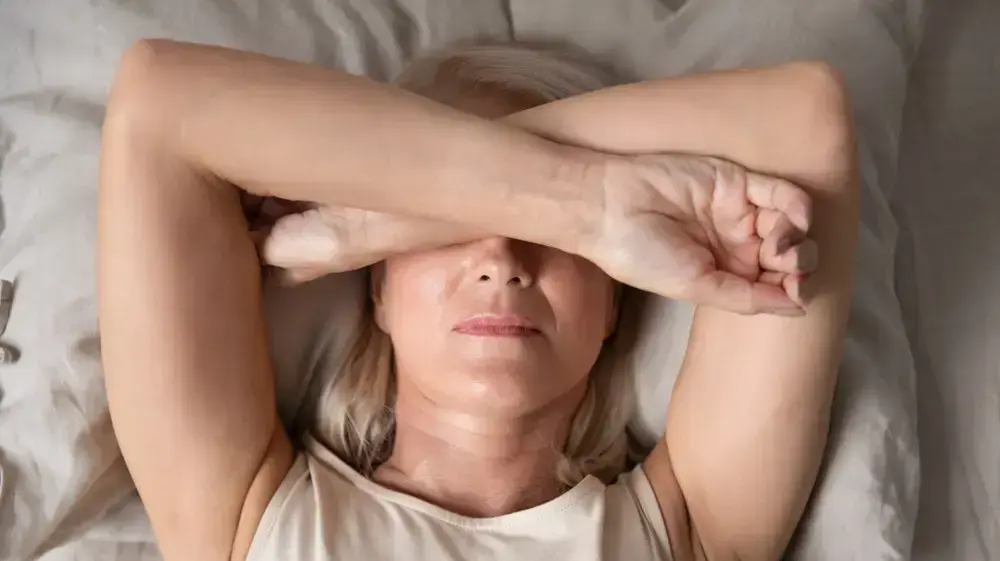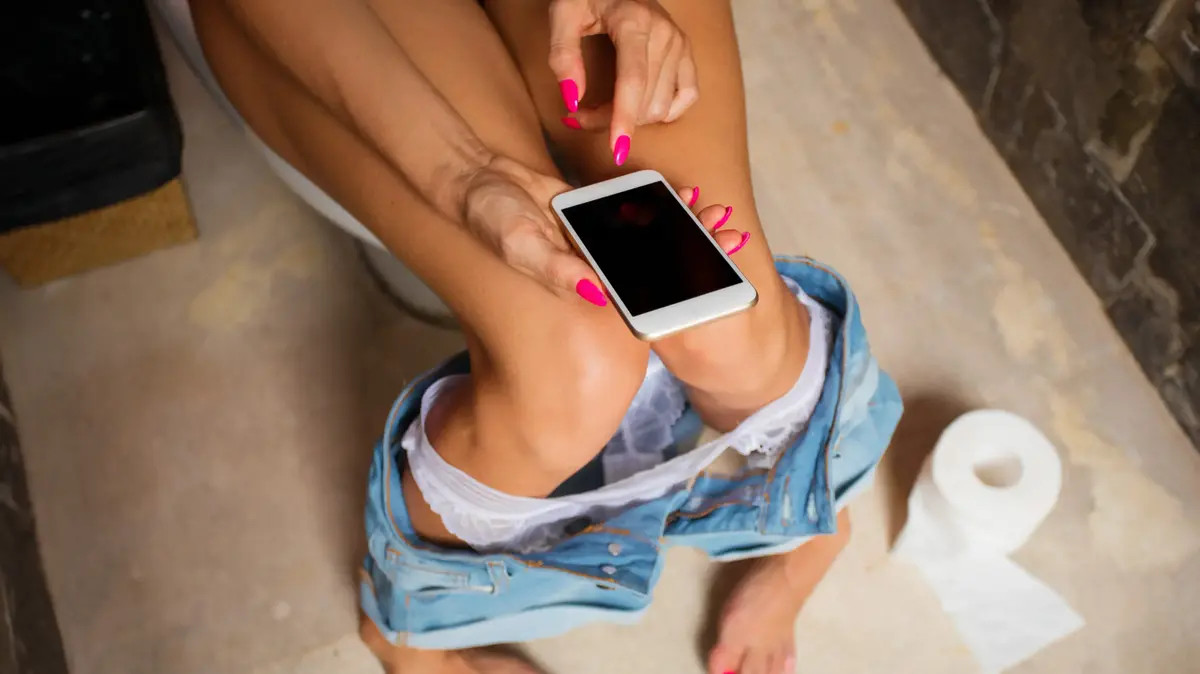Every woman will encounter these health problems.
And we have the solutions
After years of being ignored and a lack of knowledge and treatments, in recent years more and more women want to talk about menopause and the heavy toll it takes.
Gynecologist Dr. Fani Bar Levy with everything you must know
Voila system!
health
14/09/2022
Wednesday, September 14, 2022, 10:23 am Updated: 11:01 am
Share on Facebook
Share on WhatsApp
Share on Twitter
Share by email
Share in general
Comments
Comments
Much more than heat waves.
A woman sweating in bed (Photo: ShutterStock)
For many years, menopause was something women endured in silence, even a little embarrassed.
But in recent years, more and more women are changing this discourse and highlighting the difficulties that this period brings with it, as well as the benefits (yes, there are some).
The medical establishment has also changed its approach, offering more and more solutions for this challenging period.
"This age, which today constitutes such a significant and long period of time in a woman's life, is beginning to be recognized as the 'first age,'" says Dr. Fani Bar Levy, a senior gynecologist, adding that today every woman can choose how to improve her life and speak openly On the struggles, phenomena and consequences of age. If at the beginning of the 20th century the average life expectancy of a woman was about 45 years, then today the average age of death for women is 85. That is: women live and kick for many years after menopause, and therefore look for the way also improve the quality of life.
What to expect after age 50?
Menopause manifests itself differently from one woman to another, and can bring with it a host of different symptoms.
Starting with hot flashes, mental distress, mood changes, vaginal dryness, decreased libido, urinary leakage, thinning hair, sleep disorders and more.
For most women, this stage begins around the age of 50.
More in Walla!
This is what happens to your sex life at age 50
To the full article
"Menopause has direct effects and consequences on the vagina and its function. This is a phase in which the cessation of menstruation will usually occur, and the decrease in the female hormones, progesterone and estrogen, explained Dr. Bar Levy.
Here are the common problems, and the solutions:
1. Heat waves
This is the most common complaint and the classic symptom of menopause.
Hot flashes are directly caused by the drop in female hormone levels.
How are you treated?
Traditional and effective treatments include estrogen hormone replacement therapy.
Alongside them, there are today biologically identical hormonal treatments, which, although they are less acceptable among most of the medical community, because they are not an off-the-shelf drug, they are customized for the patient, and may be an effective treatment for hot flashes and other menopausal symptoms.
2. Vaginal dryness
Vaginal dryness (GSM) is also accompanied by secondary effects such as: recurrent inflammations, pain during intercourse and constant discomfort.
These cause in most cases a general avoidance of intercourse, and thus a direct impact on the level of general and marital satisfaction.
Vaginal dryness brings with it a general discomfort in the vagina that sometimes manifests itself in itching, unpleasant frictional sensations up to real pain during intercourse.
In recent years, Gsm syndrome is increasingly being talked about as part of the effects of menopause, and the reference is to the vaginal expression of dryness, which also causes general discomfort in the urinary system.
Dryness usually causes avoidance of sex, and that too has a price.
A woman hides her groin area (Photo: ShutterStock)
How are you treated?
The treatment of vaginal dryness is based on the application of hormonal ointment.
In more extreme cases, there are also treatments with radio waves combined with micro-needling, which allow the restoration of the vagina by 'controlled injury'.
Other treatments that work to restore the vagina are given in private clinics and include, for example, PRP based on plasma taken from the patient's blood.
3. Decrease in libido
One of the distinct vaginal symptoms of menopause is the decrease in libido and sexual function, which is also reflected in the frequency of intercourse and the ability to experience orgasm.
The decrease in the level of the female hormone estrogen, causes a decrease in the vaginal lubricants and the elasticity of the vagina, along with the decrease in blood flow to it, which directly and inevitably affects the difficulty of experiencing an orgasm, to the point of difficulty in intercourse and the narrowing of the vagina during intercourse.
From here, the road to harming sexual pleasure and emotional frustration is short, followed by a vicious circle of avoiding sexual relations and the inability to enjoy them.
How are you treated?
The possible treatments are wide-ranging and include everything from oral or local hormone replacement therapy, to more innovative treatments such as constant hormonal output in the body.
4. Urinary incontinence
The menopause increases the possibility of suffering from urinary incontinence and urinary frequency.
Among the causes of this, the weakening of the tissues in the urinary tract area, caused by the decrease in the female hormone, alongside the weakening of the pelvic floor muscles caused by childbirth and the prolapse of the bladder.
Menopause has mixed syndromes of urinary incontinence, characterized by general discomfort and change in frequency, it is not necessarily classic urinary leakage, and it is important to diagnose it.
There is a way to treat.
A frustrated woman (Photo: ShutterStock)
How are you treated?
The treatments for urinary incontinence include a change in lifestyle such as urinating at regular hours, weight loss, withdrawal from caffeine, citrus juices and more.
When this does not help, turn to drug treatments or surgical operation designed for situations of significant urine leakage.
In more advanced situations, advanced technological treatments are currently offered, with technologies such as laser and radio waves.
During the treatment, the laser rays gently heat the muscle tissues that control the activity of the bladder and encourage their regeneration.
Another possible treatment for urinary incontinence is Botox injection: a short and easy temporary treatment that causes a delay in bladder muscle contraction.
health
my health
Doctor, what have I got?
Tags
Menopause
heat waves
sexual desire



/cloudfront-eu-central-1.images.arcpublishing.com/prisa/547MON3UXRDQTJOVOYDMRMXXZM.jpg)










